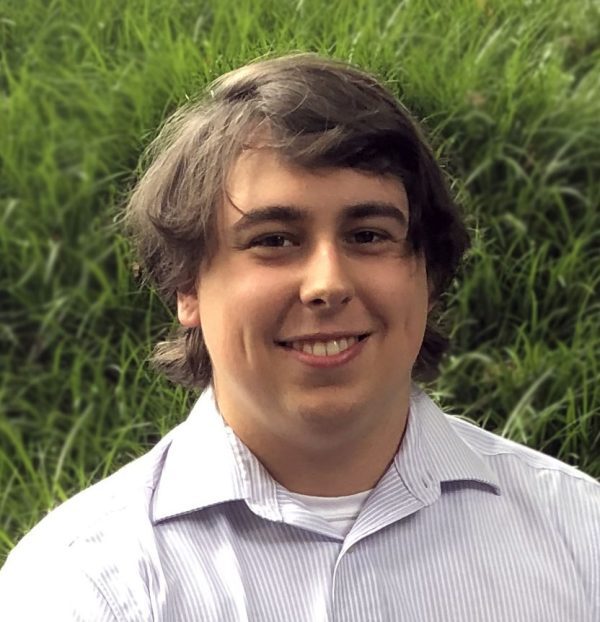2020/2021 Thomas D. Walsh Graduate Research Fellow Announced

Congratulations to Matt Faussett, the 2020/2021 Thomas D. Walsh Graduate Research Fellow! We will briefly recognize Matt during the new graduate student reception on Friday, September 4. Matt will also be honored during the Walsh Graduate Student Reception in October 2020.
The Thomas D. Walsh Graduate Research Fellowship, made possible by the generous support of Dr. Thomas D. Walsh recognizes outstanding contributions by M.S. candidates to graduate research. Returning graduate students are eligible for this prestigious award after their first year. The Thomas D. Walsh Graduate Research Fellowship supports the winner with a research assistantship and tuition support through their second year.
Matthew Faussett, originally from Durham, North Carolina, received his B.S. in Chemistry from the University of North Carolina at Charlotte with a minor in Mathematics in fall 2019. While at UNCC, Matt was a four-year member of the Ice Hockey Club team and aided the team in its first ever ACC championship in 2018. He was acknowledged for his determination and willingness to sacrifice for the team during a ceremony for graduating seniors in spring 2019. Matt first began research in 2018 with the Etzkorn group working on diflouroindanone chemistry. After graduating in late 2019, Matt began pursuing the M.S. in Chemistry at UNCC in the Etzkorn lab with a focus on oxacage chemistry and the development of an elusive target from a long-standing project within the group. The target compound, a tetra-oxacage, was an oxygen functionalized cage compound with C-O-C alternating units. Matt has aided in the development of several novel compounds. He plans to pursue a career in cage chemistry either through a PhD in organic chemistry or an industry position focused on research & development.
Oxacages, a class of organic compounds similar to the well understood crown ethers, have recently been under investigation for their role in metal complexation and molecular recognition. The Etzkorn group is developing a multifaceted, synthetically variable approach to a novel tetraoxa-cage and related compounds from a readily available hydrocarbon precursor. However, direct access to this oxacage from its starting material is presumably blocked due to the presence of reactive intermediates. To circumvent this, we aim to use the hydrocarbon precursor to develop a series of novel, oxygen-functionalized, stable intermediates that ultimately furnish the oxacage. This compound and its synthetic intermediates are of interest for probing structure-reactivity relationships. The hydrocarbon scaffold allows for exploration of innovative directions in organometallic chemistry, as well as furnishing potentially biologically active metal complexes. Targeted replacement of select methylene positions of the hydrocarbon precursor may give new avenues for investigation of unique molecular architectures and insight into fundamentals behind reactivity and bonding not yet explored.